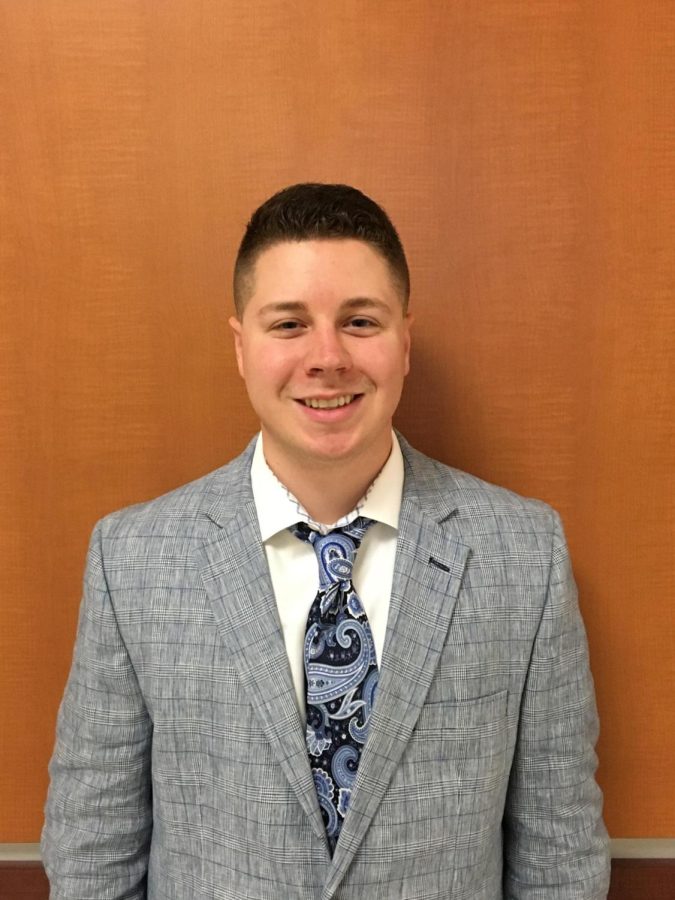Opinion: Aaron Hernandez could never escape the demons of his past
Former star and NFL tight end Aaron Hernandez was found dead in his Massachusetts prison cell after an apparent suicide early Wednesday morning.
At just 27 years old, Hernandez’s death concludes one of the more dramatic tales in recent sports memory, invoking a Shakespearean-like tragedy that played out in real time before our very eyes.
I had just graduated high school and was at Destination Kent State back in June 2013 (which I failed) when Hernandez was first arrested on suspicion of the murder of Odin Lloyd. It was a shocking sight when police officers arrived to find a shirtless Hernandez and handcuffed him, both literally and metaphorically, for the rest of his life.
Hernandez eventually was convicted of killing Lloyd and sentenced to life in prison. He recently reappeared in the news after he was acquitted and found not guilty for fatally shooting Daniel de Abreu and Safiro Furtado in 2012.
Ironically, for a lack of a better word, Hernandez allegedly killed Lloyd because he feared Lloyd would be the one to reveal information in his connections to the other shooting incident, killing one man to cover up a crime of which he would eventually be found not guilty.
If that’s not Shakespearean, I don’t know what is.
I’m not sure how we should react to the death of someone who was undoubtedly a bad person, someone who killed people in cold blood out of his own paranoia and senselessness. Scores of people on the internet and social media will react differently to his death, with varies from good riddance to R.I.P.
I don’t celebrate Hernandez’s death, but I also don’t mourn for him. He chose the path he took, one that saw him molded in a troubled upbringing to NFL star and millionaire. He signed his own death sentence and deprived himself of life in the act of taking Lloyd’s. If anything, grieve for Lloyd’s family, because they will likely be lost in all of this over the next few days.
People of all races, backgrounds and lifestyles fail to escape their former lives in pursuit of a newer one. This is never truer for athletes, some of whom cannot escape the people and problems of the past as their futures become flooded with wealth and notoriety.
Hernandez was never right, his former teammates and coaches said. Something about him made everyone uneasy. Something about him put people on edge.
He pulled one of the great acts of public masquerading that I can recall, a cold-blooded murderer hooked on marijuana and PCP disguising and moonlighting as a football player.
Strangely enough, he did it for an organization (the Patriots) that prides itself on transparency and a no-nonsense, football-only mentality they’ve forged in this league.
At certain times, death is something to be celebrated. We celebrate the lives of those who made a positive impact on this world. But aside from the death of someone like Osama bin Laden and a few others, I hesitate to celebrate the death of someone like this, and I’ll do so in Hernandez’s case.
For all the times I’ve discussed mental health, I can’t say in confidence that I’m happy someone chose to take their own life, because suicide is always a tragic act.
Why he chose now to commit suicide is anyone’s guess. Maybe it was seeing his daughter and girlfriend during these last few months of his latest trial. Maybe the thought of never getting out was too much.
The great Charlie Pierce once said, “You build your own prisons in this life. You design your own sentences.”
Hernandez carried his own life sentence long before a judge or jury issued one to him. He built his own prison in a mind that we never understood, nor will ever understand.
He lived in that prison long before he was ever issued an inmate number or assigned a cell. And, like many tragedies, his physical being died in the same place where his mind was held captive all along.
Matt Poe is a columnist, contact him at [email protected].



